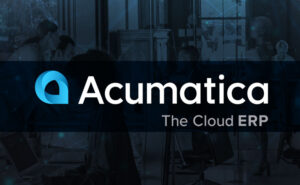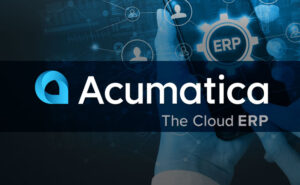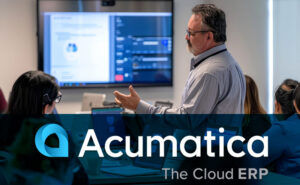Growth & Innovation Microsoft Dynamics...
Read More →Why Your Data is Most Secure in a Cloud ERP System
Today’s small and medium-sized businesses (SMBs) are striving to safeguard themselves against cybercrimes. Fortunately, implementing a modern cloud ERP solution can significantly ease their concerns.
Data safety is a major concern for today’s businesses, and rightfully so.
According to an article by Tech.co, data breaches in 2022 were widespread, costing US businesses millions in damages. While preventing such data disasters is challenging, it is achievable. The key lies in implementing a secure and comprehensive ERP solution.
However, businesses face a critical decision: should they choose an on-premises or a cloud-based ERP solution? Which option provides the safest environment for their data?
Understanding the differences between these two software options can help answer these important questions.
Data Safety: Cloud Vs. On-Premises ERP Systems
Let’s begin by examining an on-premises ERP solution. This setup necessitates that a business physically acquires, maintains, and houses the hardware necessary to run the ERP system within its own premises. Significant initial and ongoing expenses are incurred in storing this technology and hiring IT personnel to handle essential tasks such as operating system and database upgrades, as well as managing security and access risks. For many businesses, maintaining an on-premises ERP system is highly stressful, as their IT teams continuously strive to keep the system secure and stay ahead of relentless and increasingly sophisticated cyber threats.
In contrast, cloud-based ERP solutions enable businesses to offload maintenance and security concerns to the ERP vendor. The vendor hosts the servers in their own datacenters, provides automatic software updates, upgrades hardware as needed, and ensures robust protection against the latest cyber threats and sophisticated hackers. Businesses pay a subscription fee for these services with cloud ERP, eliminating the significant upfront costs associated with on-premises ERP solutions.
Security Capabilities of Cloud ERP
A cloud ERP solution ensures comprehensive cloud data security—from authentication and data entry to transmission and database protection. For example, cloud ERP solutions are hosted on secure platforms like Amazon Web Services (AWS), which automatically encrypts data entering their global networks. They also empower customers with tools to establish processes and controls necessary for compliance with industry regulations such as PCI DSS, HIPAA, and GDPR.
Cloud-based solutions are designed to swiftly detect and address security threats using proven methods like continuous monitoring, regular testing, and automated backups. In the event of vulnerabilities, the ERP vendor is responsible for promptly resolving them. The vendor’s accountability is crucial; any lapse in safeguarding business data could lead to substantial financial penalties, severe damage to reputation, or both. Therefore, vendors are highly motivated to ensure the safety and protection of their users’ data.
Steps Businesses Can Take to Safeguard Their Data
Adopting a cloud ERP solution represents a significant stride toward enhanced security. However, businesses also play a critical role in safeguarding their data:
Access Management: Implement robust access management systems and protocols to manage employee permissions effectively. Assign appropriate permissions when new users join the ERP system, provide comprehensive training on data handling best practices, and educate employees on recognizing and responding to cyber threats. Ensure prompt adjustment of permissions when employees change roles or leave the company.
Password Security: Acknowledge that passwords, while common, are increasingly vulnerable. Encourage the use of complex passwords and supplement them with multiple-factor authentication (MFA) to bolster account security significantly. According to Microsoft, enabling MFA can prevent the majority of account compromise cyberattacks.
Third-Party Risks: Recognize that a significant portion of security incidents stem from vulnerabilities in third-party applications and supply chain links. Regularly assess the security of applications integrated with the ERP system and establish clear protocols for sharing information securely within the supply chain.
While cloud ERP solutions offer robust security features and alleviate many maintenance burdens, businesses must remain proactive in implementing internal security measures and managing external risks to ensure comprehensive data protection.
How Acumatica Can Help
To summarize, while on-premises ERP systems remain popular among businesses, they face significant vulnerabilities from cyberattacks and internal errors. Maintaining hardware and software, handling upgrades, and addressing security threats demand extensive time and resources, often stretching IT teams beyond their limits.
In contrast, Acumatica’s modern cloud ERP solution offers businesses peace of mind with robust cloud data security measures. These protective layers include:
- Access Security: Utilizes federated security with Single-Sign-On (SSO) and Multifactor Authentication (MFA), allowing role-based access control to specific system components.
- Data Security and Integrity: Ensures strict control over user access permissions across all system functions, with data validated through Acumatica’s comprehensive business logic.
- Application Security: Manages application code and validation processes centrally on Acumatica’s servers, following industry-standard protocols and undergoing regular audits.
- Transmission Security: Encrypts all data transmissions using AES 128, 192, or 256-bit encryption and TLS 1.2 to maintain data integrity.
- Storage Security: Encrypts data stored in Acumatica’s databases, whether on hosted SaaS or on-premise servers, ensuring access only through Acumatica’s secure business logic.
- Physical Security: Runs all application code in professionally secured data centers, safeguarding against physical threats.
Elena Mheidze, CFO of Erickson International, experienced firsthand the benefits of Acumatica’s approach. Transitioning from Sage 100, which proved cumbersome and slow on their on-premises servers, she highlighted the relief of eliminating server maintenance costs and security concerns. With Acumatica hosted on AWS, automatic backup and robust security measures now support Erickson International’s operations seamlessly, enabling reliable access to their ERP solution from any location with an internet connection.
- Restricting user logins to specific IP addresses.
- Controlling user access by assigning unique security credentials and enforcing role-based data access.
- Providing a variety of password protection measures (e.g., prompts to change passwords, password complexity requirements, and unique, multi-factor identification options).
- Supplying built-in redundancy in case of a natural disaster or a large network outage.
- Storing Acumatica subscriber data in separate databases and ensuring that all customer workstations are completely segmented.
- Providing an Acumatica URL protected by ICANN DNSSEC standards.
- Using Acumatica’s Advanced Web Application Firewall solution (WAF).
- Applying enterprise-class MDR services to the SaaS environments to proactively prevent malicious cyber threats.
- Supporting and complying with GDPR and other regulatory requirements.
- Offering 24/7/365 monitoring from a highly trained security operations center.
If your business is not protected by a comprehensive cloud ERP solution, it’s time to learn more about ERP security and discover why Acumatica is the best system for the job. Contact our experts to set up a demonstration today.
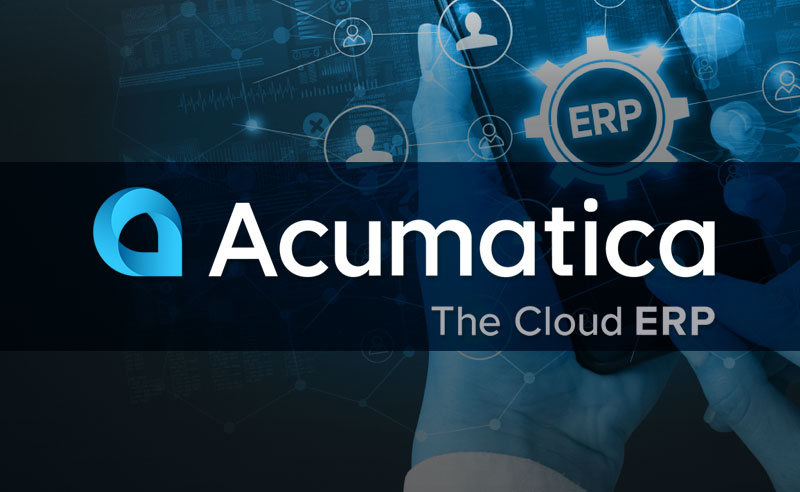
More from AIM Solutions
3 Ways ERP Software Can Improve Your Business’s Security
Today’s small and medium-sized businesses...
Read More →

